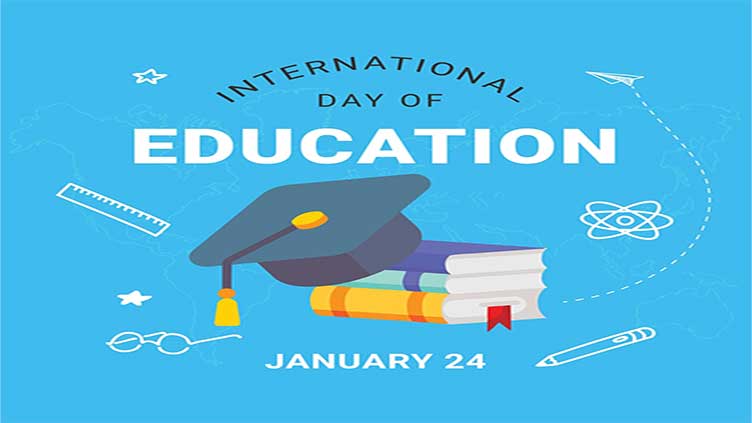Pakistan’s education crisis: Call for urgent reform
Pakistan, a nation grappling with a myriad of adversities encompassing political instability, economic turbulence, and escalating terrorism, now faces the pressing challenge of substandard education standards. President Arif Alvi has sounded the alarm, officially declaring an “Education Emergency” in the country, highlighting the urgent need for comprehensive reform. On World Education Day in January 2024, he advocated for the enrollment of approximately 26 million out-of-school children in Pakistan, shedding light on the staggering deficit of around 50,000 educational institutions exacerbated by insufficient funding.

Echoing President Alvi’s concerns, caretaker minister for federal education and professional training, Madad Ali Sindhi, emphasised the profound repercussions of inadequate education. He pointed to its role as a root cause of societal backwardness, citing its contribution to heightened levels of poverty, crime, violence, and terrorism.
Pakistan’s contemporary landscape is marred by a plethora of challenges, including poverty, insecurity, sectarianism, and terrorism, all of which can be traced back to a deficiency in tolerance, public awareness, and widespread illiteracy perpetuated by an ineffective education system. Regrettably, the pivotal role of education has long been overlooked in Pakistan, which is evident in the meagre budget allocated to the sector since its inception. This neglect has undermined educational quality, stalling the nation’s economic, political, and social progress despite numerous educational policies being adopted over the years.
The challenges plaguing Pakistan’s education system are multifaceted, ranging from inadequate budget allocations and policy implementation lapses to a flawed examination system, insufficient physical facilities, and subpar teacher quality. Moreover, the lack of uniformity within the education system has led to the coexistence of various educational systems, exacerbating societal polarisation and contributing to divisions along political, social, and economic lines. This fragmented system has fuelled recent surges in terrorism and sectarian divisions, posing a significant threat to national cohesion.
The deficiency of modern education in Pakistan has fostered the rise of backward Islamic teachings within the madrassas. As traditional religious institutions gain prominence amid political instability and economic turmoil, the absence of a contemporary curriculum in madrassas has perpetuated outdated interpretations of Islamic teachings, fostering an environment conducive to the rise of conservative ideologies. The curriculum often lacks a holistic approach, neglecting subjects that promote critical thinking and an understanding of the global landscape, thereby creating a vacuum exploited by conservative elements propagating narrow interpretations of Islam.
Furthermore, the lack of regulation and oversight in madrassas allows extremist ideologies to thrive, turning these institutions into breeding grounds for intolerance and radicalisation.
In addition to the lack of uniformity, Pakistan’s education system suffers from direction lessness and weakness, hindering the nation’s progress on political and social fronts. Emphasising general education over skill development results in a dearth of a skilled workforce, exacerbating unemployment. Moreover, the system’s neglect of science and technology stifles critical thinking and creativity among students.
The outdated curriculum further compounds these challenges, relying on rote memorization rather than holistic individual development. Neglecting psychological, philosophical, and sociological foundations impedes practical work, research, and scientific knowledge. Additionally, inadequate teacher training and poor school management contribute to alarming dropout rates, further exacerbated by external political interference and bureaucratic manipulations.
Despite numerous educational policies being formulated over the years, political will to implement them effectively has been lacking, leading to corruption, insufficient funds, and inconsistent planning. Addressing these multifaceted challenges is paramount for meaningful reform in Pakistan’s education system, necessitating a comprehensive approach involving curriculum redesign, teacher training enhancement, resource allocation, and transparent policy implementation. Through concerted efforts, Pakistan can pave the way towards a robust and effective education system, essential for its socio-economic development and national stability.
To delve deeper into the issue, it’s crucial to examine the repercussions of inadequate education beyond academics. The lack of modern education hinders intellectual development and perpetuates social and economic disparities. One of the most glaring consequences is the proliferation of madrassas, particularly in underserved and marginalised communities. These institutions, often the only source of education for many children, prioritise religious studies over modern subjects such as science, math, and social sciences. As a result, students graduating from madrassas are ill-equipped to navigate the complexities of modern society, lacking essential skills for employment and civic engagement.
Moreover, the absence of exposure to diverse perspectives and critical thinking in madrassas contributes to a narrow worldview among students, fostering intolerance and reinforcing conservative ideologies. This insular education system not only impedes social integration but also perpetuates societal divisions, fuelling sectarian tensions and extremism.
A poignant example of the consequences of inadequate education is the prevalence of blasphemy-related crimes in Pakistan. Cases of blasphemy, often stemming from misunderstandings or false accusations, have led to egregious human rights violations, including extrajudicial killings and mob violence. The lack of critical thinking skills and rational discourse among perpetrators of such crimes underscores the urgent need for education reform in Pakistan. A modern education system emphasising critical thinking, empathy, and respect for diverse viewpoints is essential for fostering a more inclusive and tolerant society.
In light of these challenges, it is evident that addressing the education emergency in Pakistan requires a holistic approach that goes beyond mere policy reforms. Investment in infrastructure, teacher training, and curriculum development is essential, but equally important is addressing socio-economic barriers to education, such as poverty and gender inequality. Only through concerted efforts to improve access to quality education for all can Pakistan hope to overcome its challenges and realise its full potential as a vibrant and prosperous nation.
In navigating the complex landscape of Pakistan’s education system, it becomes abundantly clear that the challenges are multifaceted and deeply entrenched. The barriers to quality education are myriad, from inadequate funding and outdated curricula to social disparities and extremism. However, amidst these challenges lies an opportunity for transformation and progress. Pakistan can lay the foundation for a more inclusive and equitable education system by prioritising investment in infrastructure, curriculum development, and teacher training. Moreover, addressing socio-economic barriers to education, such as poverty and gender inequality, is crucial for ensuring all children have access to quality education. As Pakistan confronts the daunting task of educational reform, it must seize this opportunity to unlock the full potential of its youth and pave the way for a brighter, more prosperous future.
This article is authored by Soumya Awasthi, expert, Centre on Armed Groups, Geneva.


